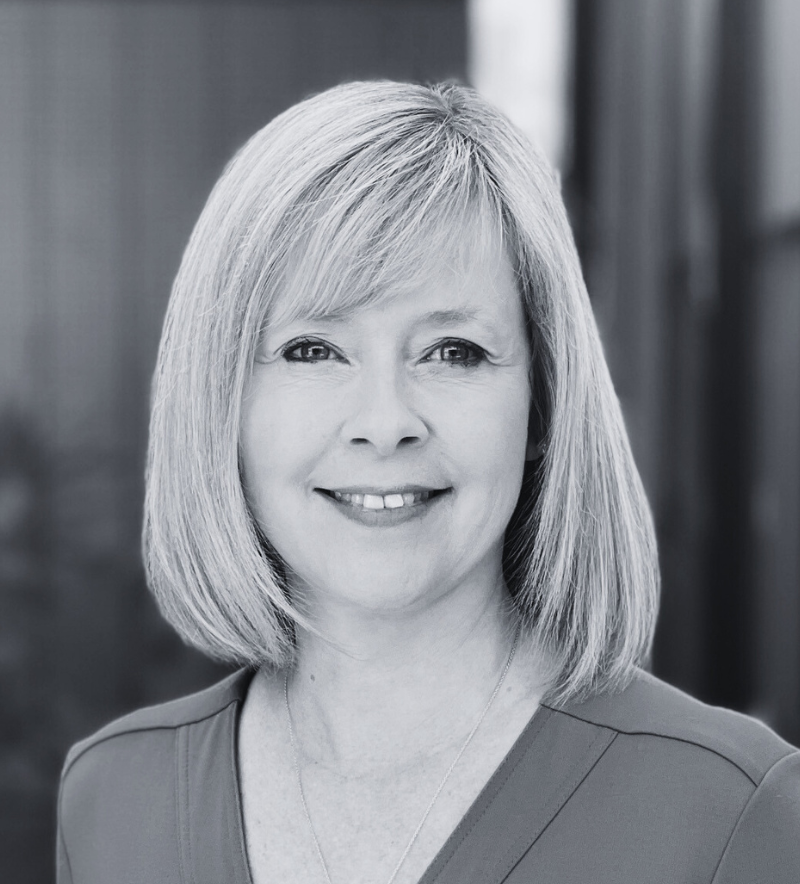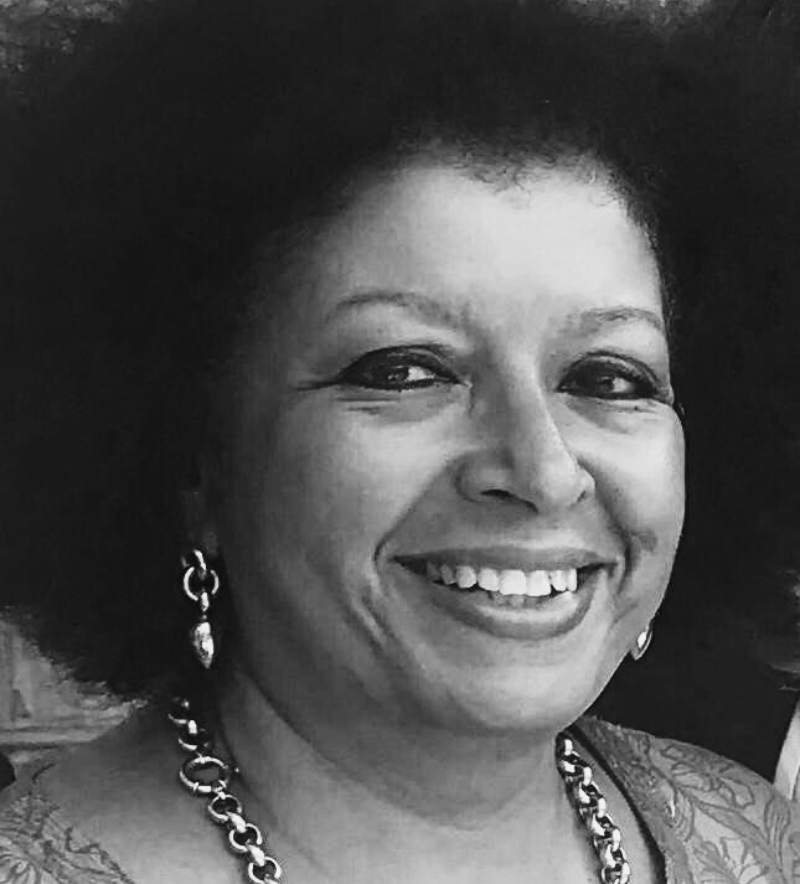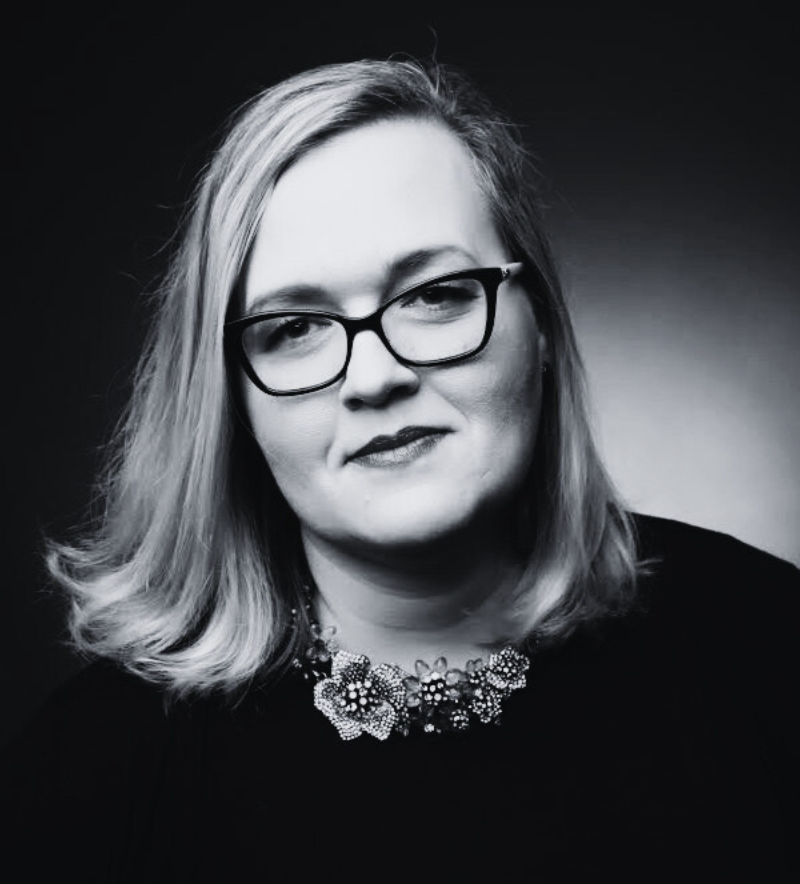We are a multi-disciplinary group of experts dedicated to increasing cervical cancer screening participation across the UK.
Our Mission
Cervical cancer incidence and screening participation in the UK
Cervical cancer remains a significant public health issue despite being both preventable and treatable if caught early. In
the UK, over 3,000 people are diagnosed with cervical cancer every year—about nine new cases every day—and around 850 people die from it annually.1
Concerningly, cervical screening participation, which saves thousands of lives each year in the UK2,3, has declined in recent years. If all eligible people were screened, it would save the lives of at least an additional 350 people each year in England alone.4 Evidence also shows the burden of cervical cancer falls disproportionately on marginalised and under-served communities: incidence rates of cervical cancer in the UK are 65% higher in the most deprived quintile of the population, and approximately 520 cervical cancer cases each year are linked to deprivation.5 This highlights a critical need for action.
About the ACCESS UK Consensus Group
Recognising the urgency, the Advancing Cervical CancEr ScreeningS (ACCESS) International Consensus Group convened a multi-disciplinary group of local experts (clinicians, researchers and patient advocates) to make recommendations for improving cervical screening participation across the UK, to help meet the target set for the elimination of cervical cancer by 2040.
ACCESS UK Consensus Group Members
The UK Consensus Group on Cervical Cancer is made up of experts with a broad range of experience and expertise in women’s health — focusing on cervical cancer from clinical, epidemiological, academic, and patient perspectives. Together, we work to make recommendations to relevant stakeholders and policymakers to advance women’s health by increasing the uptake of screening amongst under-screened women in the UK.
Kate Lancaster
Kate Lancaster is the Chief Executive of the Royal College of Obstetricians and Gynaecologists, a global organisation dedicated to improving the health of women and girls across the world. Kate has led the work of the RCOG, which spans more than 100 countries, for more than six years during which time the RCOG has worked to improve women’s health through the work of RCOG fellows and members, setting professional standards, providing gold standard specialist medical education to allow obstetricians and gynaecologists to provide the highest standards of care to women. It also leads projects to improve women’s health globally, in collaboration with professionals, health authorities and governments.
Kate is a passionate advocate for improving women’s health globally and works closely with National Government to influence policy in particular in the areas of: improving quality and access in healthcare, the role of innovation in tackling some of the challenges particular to women’s health and the need to address inequalities. Her passion for women’s health improvement builds on a career in health service delivery having held a number of Board Director roles in both the English and Scottish National Health Service including roles at Cambridge University Hospitals, Royal Papworth and NHS Forth Valley. She also held senior leadership roles within Cambridge University Health Partners, and the Eastern Academic Health Science Network and now holds Non Executive roles with the health innovation network in Kent, Surrey and Sussex and ManxCare.
Athena Lamnisos: Co-Chair (United Kingdom)
Athena Lamnisos is a senior third sector leader and is currently CEO of leading women’s health charity, The Eve Appeal which is focused on the five gynaecological cancers and prevention. Athena is experienced at forging partnerships between private, public and not for profit sectors. She has a track record of directing successful change programmes in the arena of public health and oncology and is passionate about making service user voices central to strategy. Her career spans extensive cross sector working from environmental NGO Friends of the Earth which she led the communications and fundraising directorate through to leading public sector campaigns as a founding Board director of leading strategic communications consultancy Forster. She has held numerous trustee roles including at food waste charity FareShare and as a founding trustee of restorative justice charity The Forgiveness Project.
Athena has extensive experience in UK and international patient participation and stakeholder engagement work around gynaecological cancers and specifically, cervical cancer prevention. She has led international patient participation events and presented research papers and evidence as part of ENGAGE (the European Society of Gynaecological Oncology) and BGCS (the British Gynaecological Cancer Society). She has sat on policy forums on women’s health strategy, cancer prevention and HPV, genomics (and genetic testing programmes around BRCA and Lynch Syndrome) as well as national cancer strategy convened by NHSE, DHSC and Health Improvement Scotland. Athena represents Eve as part of the Hatfield Vision Group convened by the FSRH (Faculty of Sexual and Reproductive Health).

Athena Lamnisos

Dr. Aamena Salar

Kate Lancaster

Theresa Freeman-Wang

Dr. Matejka Rebolj
Dr. Lananh Nguyen (Canada)
Dr. Nguyen is the Director of Cytopathology at Unity Health Toronto, Canada. She is also an Associate Professor and Associate Graduate Faculty Member at the University of Toronto.
Dr. Nguyen is affiliated with several professional associations including the Canadian Association on Neuropathologists (CANP), Ontario Medical Association (OMA), and American Society of Cytopathology (ASC). She has been Vice-Chair of the Cytopathology Committee and Expert Advisor on the Quality Measures Technical Expert Panel for the College of American Pathologists (CAP). She is also an Expert Consultant to the European Hologic Cervical Health Advisory Board.
Athena Lamnisos
Athena Lamnisos is a senior third sector leader and is currently Chief Executive Officer of the leading women’s health charity, The Eve Appeal, which is focused on the five gynaecological cancers and prevention. Athena is experienced at forging partnerships between private, public and not-for-profit sectors. She has a track record of directing successful change programmes in the arena of public health and oncology and is passionate about making service user voices central to strategy. Her career spans extensive cross-sector working from environmental NGO Friends of the Earth, where she led the communications and fundraising directorate, through to leading public sector campaigns as a founding Board director of leading strategic communications consultancy Forster. She has held numerous trustee roles, including at food waste charity FareShare and as a founding trustee of restorative justice charity The Forgiveness Project.
Athena has extensive experience in UK and international patient participation and stakeholder engagement work around gynaecological cancers and specifically, cervical cancer prevention. She has led international patient participation events and presented research papers and evidence as part of ENGAGE (the European Society of Gynaecological Oncology) and BGCS (the British Gynaecological Cancer Society). She has sat on policy forums on women’s health strategy, cancer prevention and HPV, genomics (and genetic testing programmes around BRCA and Lynch Syndrome) as well as national cancer strategy convened by NHSE, DHSC and Health Improvement Scotland. Athena represents Eve as part of the Hatfield Vision Group convened by the FSRH (Faculty of Sexual and Reproductive Health).
Theresa Freeman-Wang
Theresa Freeman-Wang is Consultant Gynaecologist at the Whittington Hospital in North London. She has over 25 years’ experience as a colposcopist. She has held a range of leadership roles in cervical screening including Quality Assurance director for Cervical Screening across London, vice chair of the UK cervical Screening Advisory Committee and a member of the NHS Research Advisory and Colposcopy Professional Groups and a professional colposcopy advisor.
She is Immediate Past President of the British Society for Colposcopy and Cervical Pathology (BSCCP) and President-Elect of the International Federation of Cancer Prevention and Colposcopy. Theresa has authored several of the chapters on colposcopy management including providing a quality colposcopy service, the psychological sequalae of colposcopy, management in pregnancy and of the immunosuppressed. She is a colposcopy trainer, running regular courses in colposcopy and treatment of cervical premalignancy locally, nationally and internationally.
As a gynaecologist she has been a clinical director, lead for local gynaecological oncology services and an educational supervisor. Her other interests include the history of medicine, theatre going and spending time with family and friends.
Dr. Aamena Salar
Dr Aamena Salar is a General Practitioner based in Birmingham with an extended role in Gynaecology. She is a Member of the National taskforce championing Women’s Health Modality Partnership. She set up the Modality Gynaecology Service in 2015 as part of the Vanguard 5 year Forward Plan project which remains a success. She completed the FSRH and DRCOG diplomas during her training and subsequently went on to complete Community Gynaecology Diploma and Diagnostic Hysteroscopy Diploma from Bradford University. She is also leading a NHS cancer study which is looking to improve the diagnostic pathway of ovarian cancer with the aim of detecting ovarian cancer at an earlier stages.
Dr. Joseph Monsonego (France)
Dr. Monsonego is a Gynaecologist based in Paris, France, where he specialises in colposcopy and in the management of HPV associated diseases.
He attended the Medical University of Paris and is the former Head of the Onco-Gynaecological and Breast Screening Unit (Paris Nord University, Department of Professor Lucien Israël – Bobigny). His institutional affiliations include Medical Director of Institut of the Cervix Paris, France; Member of the President and Founder of EUROGIN (European Research Organization on Genital Infection and Neoplasia); Expert Consultant on Cancer for the World Health Organization (WHO/OMS); and President of the international Women Against Cervical Cancer (WACC) Foundation.
Dr. Monsonego’s specialist areas of research include: Management of abnormal pap smear and papillomavirus infection, Cervical cancer screening and prevention, Colposcopy and treatment of genital papillomavirus lesions, Clinical trials of HPV vaccines, Prophylactic and therapeutic vaccines for human papillomavirus infections, Screening for cervical cancers, colposcopy, and drugs for the treatment of HPV-related lesions, and new technologies applied to cervical cancer screening and management, such as HPV DNA testing and genotyping, liquid-based cytology, real-time screening methods, and molecular markers.
Dr. Jennifer Susan Smith (United States)
Dr. Smith is an Epidemiology Professor at the Gillings School of Global Public Health, North Carolina.
She is also affiliated with the UNC Lineberger Comprehensive Cancer Center, UNC Center for Aids Research, and the UNC Center for Women’s Health Research.
Additionally, Dr. Smith has conducted research on HPV infection and associated cervical neoplasia and cancer since 1995 and has published over 200 articles in international peer-reviewed journals. Her current research focuses on epidemiological studies of human papillomavirus (HPV) and cervical cancer worldwide (primarily in China, Kenya, South Africa, and North Carolina), with a focus on prevention via screening, HPV self-screening, and prophylactic vaccines.
Dr. Smith is currently conducting self-screening demonstration projects of HPV infection among high-risk women in Mombasa, Kenya, and in rural North Carolina.
Professor Philippe Descamps: Co-Chair (France)
Professor Descamps is a Distinguished Professor of Obstetrics and Gynaecology and has been the Head of Obstetrics and Gynaecology at Angers University Hospital in France since 1999. He is also the Director of the Regional Reference Centre for Endometriosis, Endo Ref-Angers.
Professor Descamps is the Vice President of the International Federation of Gynaecology and Obstetrics (FIGO) and was elected as the French representative to the FIGO Council (2015 – 2021). He has sat on the Minimal Access Surgery Committee (2018 – 2021) and was a member of FIGO’s Strategic Planning Committee (2020 – 2021).
At a national level, he has supported the French National College of Gynaecologists and Obstetricians (CNGOF) by serving as the President of its International Relations Committee (2012 – present) and a member of its Board and Bureau (2005 – present). He was also the Vice President of the French Society of Gynaecological and Pelvic Surgery (SCGP) between 2011 and 2021.
Dr. Mairead O'Connor (Ireland)
Dr. O’Connor is a researcher and ICE Postdoctoral Research Fellow at Trinity College Dublin and has been involved in CERVIVA, a multi-disciplinary research consortium investigating cervical cancer screening and HPV-associated diseases since 2009.
She has over 12 years of experience in planning, coordinating, and conducting research studies underpinned by behavioural science in cancer prevention. Much of her research has focused on understanding the psychological impact of cervical cancer screening on women.
She has collaborated with national and international stakeholders across diverse disciplines and institutions including the National Cancer Registry Ireland (NCRI), the University College Cork (UCC) and the National Cancer Control Programme (NCCP).
Bridget Gorham
Bridget Gorham is a human rights and public policy professional with experience spanning management consulting, nonprofit sector leadership, and public sector health economics analysis. At the NHS Confederation, Bridget led the report, Women’s health economics: investing in the 51 percent, which illustrates the links between investment in women’s health and wider economic prosperity throughout the UK. An intersectional, human rights approach to health has allowed Bridget to delve deeper into health issues experienced solely or disproportionately by a certain population, and accentuate areas where disadvantage is classed, racialised, aged, abled, and / or gendered.
Dr. Matejka Rebolj
Dr Matejka Rebolj is a Senior Epidemiologist working at the Centre for Cancer Screening, Prevention, and Early Detection at the Wolfson Institute of Population Health, Queen Mary University of London. She has long-standing experience with analysing large data sets with routinely recorded data from cancer screening programmes in several European countries, with a particular interest in the use of HPV testing for cervical screening.
Her research focuses on the evaluation of current screening practices (such as organised screening programmes), the evaluation of new screening methods, and the development of methods to evaluate screening.
Recommendations
In order to achieve the goal of cervical cancer elimination by 2040, it is critical that comprehensive and inclusive strategies are implemented across the UK.
The ACCESS UK Consensus Group on Cervical Cancer, a multi-disciplinary group of leading experts in the field, calls on the UK governments and healthcare authorities to:
Create National Cervical Cancer Elimination Plans
1. Each of the nations of the UK should prioritise the immediate development of a well-funded national cervical cancer elimination plan, including equity targets focused on reducing cervical cancer rates in the most under-served groups.
Implement targeted and culturally relevant education, information and awareness-raising initiatives, particularly focused on under-screened women
2. NHS England and national health bodies in the devolved nations should provide local healthcare providers with public health data, including ethnicity, gender and disability data, that enables them to identify and understand the needs of their under-screened populations.
3. Local providers should co-design culturally relevant and inclusive education initiatives with community leaders and healthcare advocates, while national bodies should provide resources for local use for evaluating the effectiveness and sustainability of these initiatives.
4. The Departments of Health and Social Care and the Departments for Education should collaborate to create appropriate educational content about the importance of cervical cancer prevention, including HPV vaccination and cervical screening.
5. National health authorities should reframe the conversation on cervical screening by positioning it as a routine, essential health check.
Improve accessibility of cervical screening
6. National health authorities should modernise the screening invitation system by adopting a digital-first approach. Communication should be tailored to population-specific needs, addressing language and cultural barriers and varying levels of health literacy.
7. National health authorities should seek to expand screening accessibility across all relevant healthcare settings, including primary care practices, community health centres, women’s health hubs, sexual health clinics, and midwifery services. Providers should be encouraged to offer out-of-hours clinics and flexible appointment options.
8. Self-sampling should be reserved primarily for under-screened women at this stage, to not undermine the overall effectiveness of the screening programme. It also must be accompanied by strategies to enhance follow-up adherence and ensure clear communication about its advantages and disadvantages.
Support healthcare professionals to increase participation in cervical screening
9. The Department of Health and Social Care should review the financial incentives for primary care providers to prioritise increasing screening participation, particularly among under-served groups.
10. National health authorities should allocate greater resources to expand training and support for a diverse health and community workforce dedicated to cervical screening.
11. Comprehensive training should equip healthcare professionals to enhance sensitivity to the diverse needs and personal concerns of all women undergoing screening.
Latest news
- [September 2025] Public Health and Prevention Minister Ashley Dalton MP replies to ACCESS UK Group Joint Letter, outlining ongoing Government efforts to achieve cervical cancer elimination in England.
- [June 2025] ACCESS UK Group Joint letter to DHSC to clarify accountability for cervical cancer elimination plan.
- [March 2025] ACCESS UK Group launches Consensus Statement to tackle inequalities and barriers in cervical screening, and advance cervical cancer elimination efforts in the UK.
References
1 Cancer Research UK. Cervical cancer statistics. Available at:
https://www.cancerresearchuk.org/health-professional/cancer-statistics/statistics-by-cancer-type/cervical-cancer.
2 NHS England. Topic 2: background to cervical screening. Available at: https://www.gov.uk/government/publications/cervical-screening-cervical-sample-taker-training/theory-topic-2-background-to-cervical-screening.
3 Landy R, Pesola F, Sasieni P, Impact of cervical screening on cervical cancer mortality: estimation using stage-specific results from a nested case-control study. British Journal of Cancer. 2016;115, 1140–1146. doi: 10.1038/bjc.2016.290.
4 Nursing In Practice. Cervical screening could save 350 more lives each year. 2016. Available at: https://www.nursinginpractice.com/latest-news/cervical-screening-could-save-350-more-lives-each-year/.
5 Cancer Research UK. Cervical cancer statistics. Available at: https://www.cancerresearchuk.org/health-professional/cancer-statistics/statistics-by-cancer-type/cervical-cancer.
